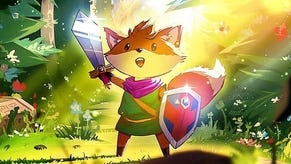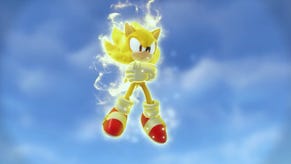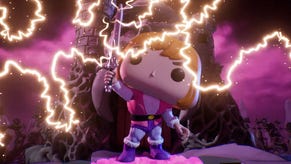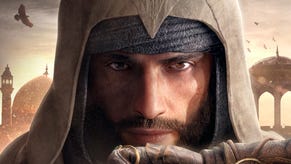Hideo Kojima discusses the development of Metal Gear Solid 3
"Accidents or coincidences never make the game fun. The thing is whether or not the original ideas I created in my original game concept happen."
Konami may have a carefully orchestrated promotional campaign in motion - gently fostering free-range MGS hype with a drip feed of new information and footage - but that hasn't stopped series creator Hideo Kojima from giving an insight into the development of Metal Gear Solid 3: Snake Eater this week.
Although the veteran and outspoken games designer (flanked by Konami international affairs manager Scott Dolph) didn't shed any more light on specific features in the increasingly exciting stealth-action sequel, it's unusual and rather interesting to hear how the original concept of the survival game took shape, and the steps Kojima's Tokyo-based dev team took to nurture it on the way.
"If I had wanted to release MGS3 within a year of releasing MGS2, the easiest way of doing that would be to pick up where MGS2 ended, using the same engine, the same game system, even the same characters," he told GameSpy. "I guess Electronic Arts and many other companies do this; but if I did that, it would be no fun at all."
But while Kojima didn't immediately set to work creating another game in the image of MGS2, he claims he did use the cooling off period after the second game's completion to come up with the ideas that formed the backbone of Snake Eater. Having decided to make a game about survival, he sketched out some ideas while his hard-working team was on holiday, and by the time they returned he had a plan.
"I decided that MGS3 should be about survival, and I started thinking about how survival would work in the game. The game takes place in the '60s, and if the game was going to be about survival, I decided it had better take place in the jungle," he said. However, MGS' previously heavy reliance on tight indoor environments meant a lot of proof-of-concept testing was required, including experiments to see if the team could create MGS in a real-time outdoor environment.
"What we did to create the experimental environment was that we went to islands like Yakushima, Amami Oshima, and even places in Canada," he told GameSpy this week. "These are places with a lot of vegetation, like Japanese jungles. (Well, obviously not Canada.) Based on our research, we created this fictional jungle forest to see if it worked." From here Kojima's team had to work out how the game would work in the jungle, so they called in MGS2 military advisor Motosada Mori and asked him to show them how to survive in the wild.
"Mr. Mori taught how camouflage works in the wilderness, and he showed us CQC techniques. He showed us how the people really would fight against each other. He also taught us the technique of stalking, which is very slow. You don't make any sounds." In the meantime, Kojima himself was working on the actual plot and characters of the game, developing them in such a way to fit the new setting. "What we showed at E3 2003 was basically the whole thing working in the jungle."
After that, the team realised they had to junk the previous graphics engine ("It was just too slow."), which gave Kojima an opportunity to work on the actual script. "I worked on this thing called a 'script-ment.' It's basically the game from beginning to end, with notes about what happens throughout the game, what happens to the character, and whether there are sounds that he makes or sounds in the environment." The resulting document drove development from there.
In the rest of an interesting interview, Konami's Scott Dolph discusses how KCET approaches each market ("What you need to do is create what you want to create the right way, and not try to secure it against a certain audience"), and Kojima fields questions on topics ranging from the PSP and Nintendo DS to the future of gaming - something which unsurprisingly he has rather a lot to say about. All in all, it's well worth reading, even if you care not a jot for this Metal Gear Solid lark. You can find the interview in its entirety here.





.png?width=291&height=164&fit=crop&quality=80&format=jpg&auto=webp)


